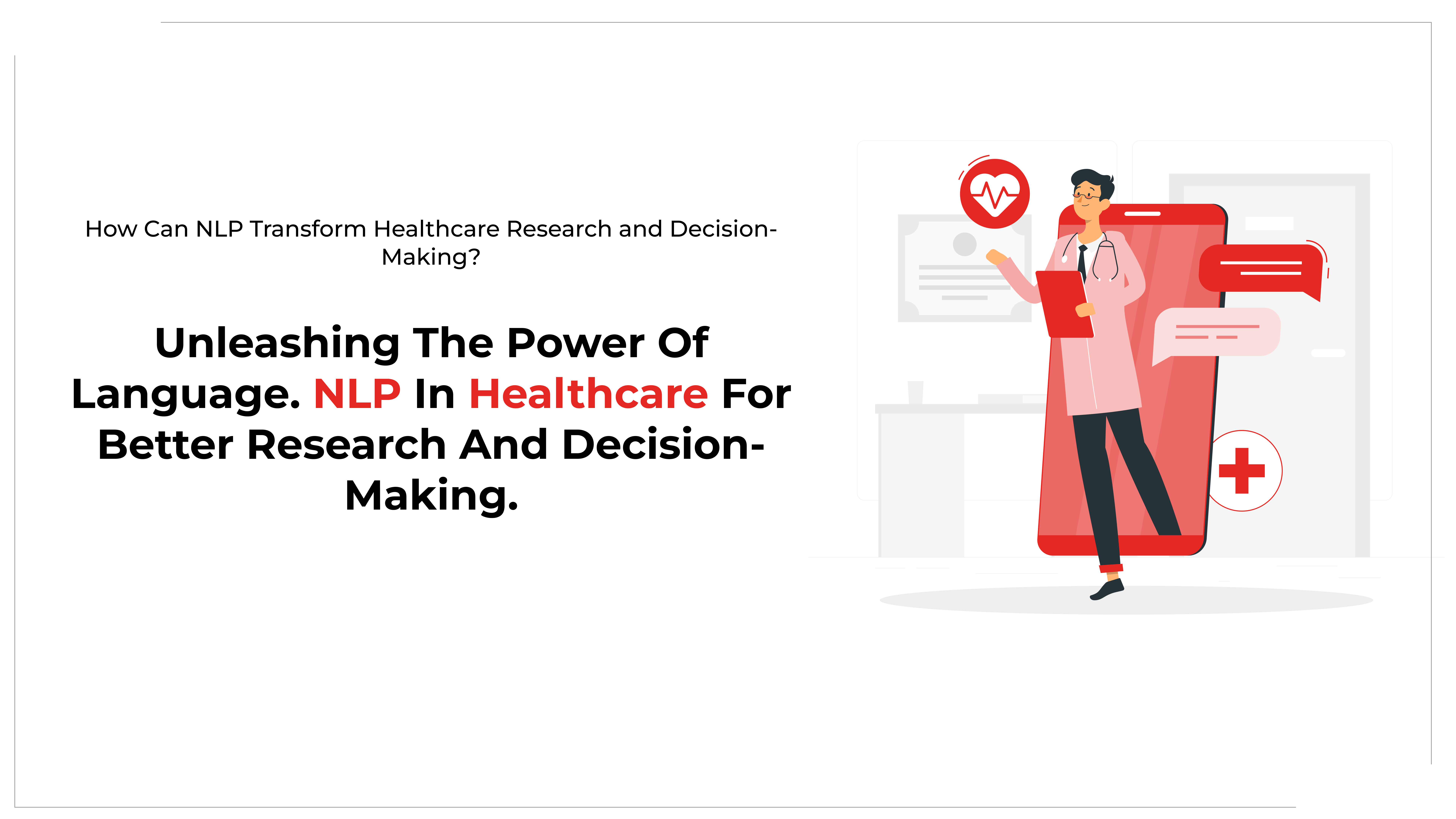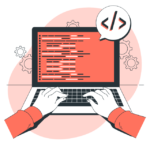Unleashing the Power of Language NLP in Healthcare for Better Research and Decision-Making

In an era characterized by vast and intricate data flows, the healthcare industry is not exempt from the data deluge. Every day, healthcare professionals, researchers, and decision-makers grapple with a tsunami of clinical notes, medical records, research papers, and patient data. The need to harness this wealth of information efficiently, accurately, and in a timely manner has never been more crucial. This is where NLP and healthcare join. Natural Language Processing, a fascinating branch of artificial intelligence, steps into the healthcare arena, promising to be a game-changer.
NLP, at its core, empowers machines to understand, interpret, and generate human language. When NLP in healthcare, it becomes a potent tool for extracting valuable insights from clinical notes, deciphering intricate medical jargon, and accelerating the pace of medical research. Moreover, NLP-driven solutions are enhancing decision-making processes, enabling healthcare professionals to make more informed choices, tailor treatments, and improve patient outcomes.
Understanding NLP in Healthcare
Natural Language Processing (NLP) is the application of artificial intelligence to interpret and generate human language, a breakthrough with significant implications for healthcare. NLP for healthcare algorithms process vast amounts of healthcare data, extracting valuable insights from clinical notes, research papers, and electronic health records. It empowers healthcare professionals by transforming unstructured text into structured data, enhancing clinical workflows, optimizing research processes, and ultimately improving patient care. NLP for healthcare represents a transformative technology at the intersection of linguistics and healthcare informatics, revolutionizing the way we handle healthcare information.
Benefits and Limitations of Natural Language Processing in Healthcare
Benefits
- Information Extraction and Data Mining
- Drug Development and Pharmacovigilance
- Patient Engagement and Support
Limitations
- Data Quality and Standardization
- Privacy and Ethical Concerns
Handling sensitive health data raises significant privacy and ethical challenges. Protecting patient privacy while utilizing NLP for data analysis and insights is a critical concern.
- Interoperability Challenges
Integration of NLP and healthcare systems with existing healthcare technologies and electronic health records is often complex, hindering seamless adoption and utilization.
What is Clinical NLP?
Clinical Natural Language Processing (Clinical NLP) is a specialized branch of artificial intelligence that involves the use of computational algorithms to extract and analyze relevant medical information from unstructured clinical text. This technology deciphers intricate medical language, including abbreviations and complex terminology, to derive meaningful insights. Clinical NLP enables the automation of information retrieval from electronic health records, medical literature, and healthcare documents. It plays a pivotal role in clinical decision-making, research, quality assessment, and population health management by transforming unstructured medical data into structured, actionable intelligence, ultimately enhancing healthcare delivery and patient outcomes.
Top Case Studies and Success Stories of NLP and Healthcare
- IBM Watson for Oncology
- Google Health’s DeepMind Health
Future Prospects and Innovations of NLP for Healthcare
The future of Natural Language Processing (NLP) in healthcare is exceptionally promising. Advancements in NLP in healthcare, driven by machine learning and deep learning, are poised to refine clinical decision-making, automate medical coding, and extract crucial insights from vast amounts of health-related text data. Sentiment analysis for patient feedback, disease prediction, and drug discovery are areas of rapid growth. Integration with electronic health records and real-time monitoring could enhance patient care and streamline administrative tasks. Overcoming challenges like data privacy and ethical use is vital. Ultimately, NLP for healthcare stands to revolutionize healthcare, augmenting efficiency, precision, and ultimately, patient well-being.
- Osama Ehsan
- 19 Sept 2023


